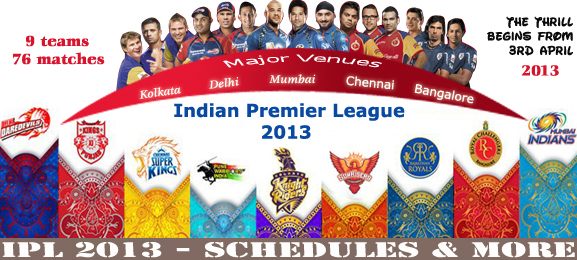Season Six of the Indian Premier League (IPL) has been rocked by allegations of spot fixing .Three current IPL players S Sreesanth, Ajit Chandila and Ankeet Chavan from the franchise Rajasthan Royals are in police custody.
A fourth former Royals player-turned bookie Amit Singh is also in the police net.
Match fixing was first brought to light in 2000 when the now deceased former South African captain Hansie Cronje was caught trying to rig matches. That discovery led to many other international cricketers charged with bringing the game into disrepute, and barred from playing international cricket. 2009 saw three Pakistani players sent to jail after they were caught trying to spot fix test matches on their tour of England.

Last year, a sting operation done by an Indian news channel suggested spot fixing might be prevalent in IPL and domestic Indian cricket.
Did cricket get any wiser from these incidents? The answer is a resounding ‘No.’
Poor governance
Since its inception, IPL has been more in the news for incidents off the field than on it.
The talk of a transparent, well-organised tournament, run on the best tenants of corporate governance seems hollow. The IPL bosses appear to shy away from facing facts that the richest cricket league in the world, with the shortest playing format will be a lucrative target for bookmakers.
When you have unheralded Indian domestic and club players paid millions to bowl one expensive over by bookmakers, the temptation is huge.
How difficult will it be for players to say ‘No’ to such huge offerings, when they know that their life in IPL circles might not be that long?
The Anti-Corruption wing of IPL operates only for the duration of the Tournament. But bookmakers work all-year around.
Football, grappling with similar credibility issues, took the help of Interpol to stem the rot. Can the Board of Control for Cricket in India (BCCI), which is the richest board in world cricket, not follow suit and seek external help?
Punitive measures
Exemplary punishment should be given to players, officials and franchises convicted of trying to rig results of the games or spot fix segments. Services of current and former greats of Indian cricket should be enlisted to mentor young players against match fixing. Making players realise the pitfalls of such actions can be the only deterrent. Moral lecturing in today’s commercialised world might ring hollow.
BCCI cannot be such a closed shop. A set of powerful politicians and corporates have immense influence on the organisation. They have to admit the shortcomings and take decisions to purge the game of its ills, and restore the faith of the fans in cricket.
Coming under the purview of Right to Information Act (RTI) will be a good start.
The Gentleman’s game is not being played or run by all people who fit the description of that ten-letter word.
Match-fixing has eroded cleanliness of IPL






